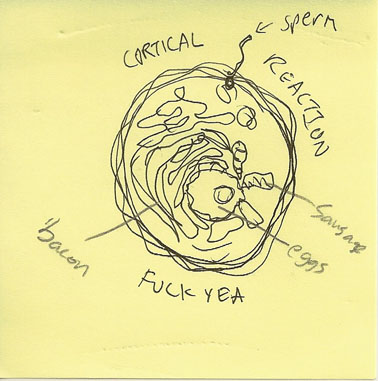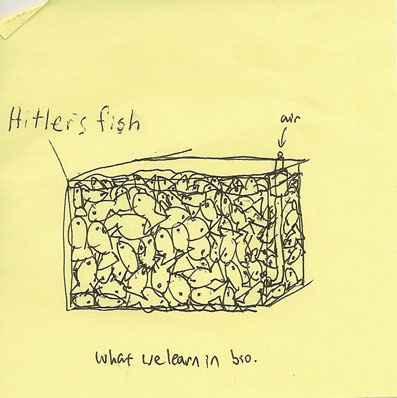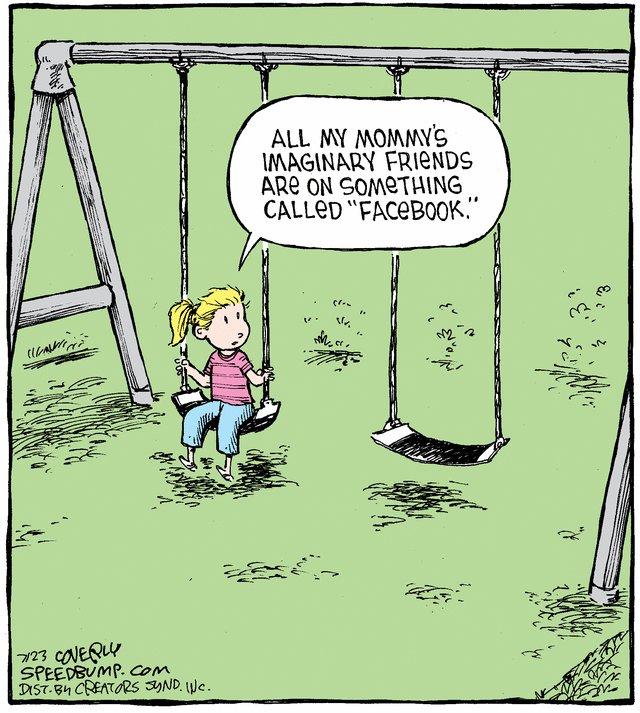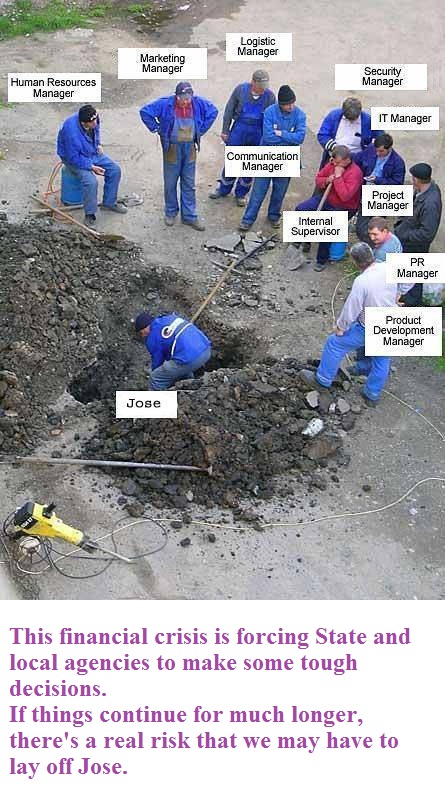I lost my pencil recently. It’s the pencil with which I took my SAT’s and finals and math homework and everything for almost three years now. Together with my team of 0.38mm ultra-thin Pilot G2’s, they’re like sperm and eggs. I’ve got plenty more new G2’s in the bookshelf but that pencil was really something irreplaceable. Though the Pilots were quickly spent writing out long biology study guides, it was the pink Dr. Grip that takes 80% the grade with scantrons and essays. Damn it, now I’m stuck with some scrawny yellow girly thing. It’s like losing a piece of history.
To make sure I don’t lose these too, here are the highlights of the postit series (hah, pun, see highlights?) from the past couple weeks:










I’m thinking about the possible criticism somebody could come up with after scrutinizing RogerHub’s blog design. So, I made it some ultra-far seeing visionary junk that nobody could possibly comprehend. Thus, this design. I named it roger-hybrid. Speaking of names, I need a name for NHSWeb’s second iteration. NHSWeb 2.0 sounds so lame. I want something fancy, or british, because british people have cool names. I think I’m going to start a development blog for that over the summer. Ha, I’m looking forward to online civics....
When you hear about website designing and modeling, intuition comes up very often. It is the idea that the user should know what to do without any instructions or learning. If you do it right, an intuitive interface not only gives you a successful product but also a nod from the geek community. If you don’t, it quickly becomes stylish to hate you and your site. Hate. Your site. I hate your site.
Intuition means more than just easy buttons and pictures. But of course, this part is still very important. I was trying Mathematica and I was trying to find the “evaluate” button or something. It wasn’t there, meh.. I’ll go Google it. But before I could even alt-tab to Chrome, I noticed my left ring finger was holding down shift and my right ring finger hit Enter. What the heck, the statement evaluated. I’m dead serious, I had no idea what Shift+Enter did until my fingers moved involuntarily to chain them. It wasn’t some chance event since I wasn’t consciously aware of blindly attempting combinations. So I come up with an explanation: Wolfram built their product so that I’d intuitively know what Shift+Enter did. Massive mindfuck.
There are other kinds of intuition, equally important. Once you set eyes on the front page of Twitter, you’ve grasped what the site does and it’s complete set of features. Maybe this is just an idiosyncrasy with computer geeks, but it’s disturbing to use a product that you don’t understand fully. Wordpress and Outlook, those take some googling to figure through completely, but they’re still easy to grasp. Their application models don’t change. There’s no magic cloud bullshit involved. You can look through the entire RFC specification (or source code for the former) and see exactly the purpose and inner workings of the program. Of course, knowing how Outlook works and building a mail client are completely different things. This last point is rather surprising, I’ll elaborate:
The obscure cults of Internet neckbeards love to build their own free, community-run versions of commercial software, you know, the commercial software that everybody else uses. In fact, they generally don’t understand why the entire population hasn’t switched to their obviously cooler and non-evil software. It has become a running joke that a general bug in all non-conformist free software is that it isn’t very widespread among normal people. The problem lies with intuition. As great as their neckbeard flawless&stylish code may be, normal people really don’t understand what it does or why it exists. It’s not easily correctable just because those neckbeard visionaries are years ahead of their time and nobody really listens to them.
Some people say that the best judges of intuition are the stupid. But that’s probably not true. I mean, if idiots are experts on intuitive design, we’d all be experts.

I like to think I have a lot of patience. In fact, most people think that way too, whether they do or not. See, we typically don’t push our patience very much. All the problems and obstacles we get in school are planned and artificial, and therefore aren’t very informative. Another C-? Meh, move on. Nothing puts us back too far and everything’s alright.
Ahh, for a couple days I’ve been trying some very low-level languages. Not ASM-level, but some easy C, yes, and it is absolutely horrifying. Everything I thought I knew how to do suddenly became a huge mess. I say this because low-level languages don’t have the fancy schmancy interpreted conventions that high-level languages do. The down and dirty work that’s much closer to the machine’s heart really puts things in perspective. I’ve melted all over the beauty of the abstraction stack before, but these past few days, I’ve learned to be really grateful for all the conveniences that past human progress gives us. Really, take a look around and see.
So when I got back to my comfortable ruby and javascript, I noticed that the world outside of education in our pretty little high school is pretty damn tough. Man, things are moving by so fast, I’m gonna miss going to school real soon..
A trillion years ago when the internet wasn’t filled with mind-clouding circlejerk, a couple masterminds had an idea: the Semantic Web. Now, get this: much of the Internet you see is built for humans like you, not computers. Gridded layouts, pictures, heavily scripted modal windows: computers don’t understand any of it. Those nice things we have exist because we, the humans, like em. Of course, design controls your impression of a site. It rewards beautiful sites and destroys ugly ones (read: gawker media, digg). But hey, it becomes a problem when design starts to become more important than content.
I’m not talking about data structure design. The internal workings and logic of a website are massively important. Trust me, I screwed up plenty before. But , the visual things we see, the stupid little control bars and pretty colors or obscene Ajax over-kill: they don’t belong on the web. You lose sight of the original purpose of the internet. Purpose? Try summarizing in a couple words what the Internet does, for you and for anybody else who uses it. It’s rather difficult given the immense variety of web “crap-plications”. If you really care to hear about it, the internet is a way to let humans (that’s you) interact with a database. Databases are such an abstracted concept in society, you know, the “cloud” and “distributed computing” all that web-marketing bullshit. Actually, databases are simply records of information. In its simplest form, the internet can relay chat messages, or maybe an encyclopedia, or funny pictures and helvetican ammunition for self-important nonconformists. Whatever you’re using, the main role of the internet is reading, creating, updating, and deleting data. Websites should reflect this purpose. You know, form to fit function.
The idea of one semantic web is an internet centered around information, which is definitely the reason why the web exists. In this utopia, fancy flash-powered pizza hut websites and ridiculous neon-blue sparknotes grids have no place. Instead, all information is as simple or complex as it needs to be, and all information is available, not only to humans, but also to computers. A computer will not like clicking through 10 pages of flash content to order pizza. The W3C is an organization dedicated to achieving a standardized semantic web that is usable by both humans and computers. Websites should clearly indicate headings and footers with their proper semantic tags. No more table nonsense for laying out pages. Tables are semantically meant to be tables, nothing more. So, I want to say that RogerHub’s design that is ~10KB + jQuery is rather future-proof.

I’ve been considering what RogerHub is still doing up online. Blogging is a great experience and all, unforgettable really, but I just had to find a more definite mission. And here’s what I’ve got: Think about the role of the Internet in your life. When you’re brainstorming ideas for great programs and summer projects, you always hit this one wall: How do I get people addicted and coming back? And then you see it. The evil trap! It’s so easy to fall into. Every industry related to gaming or technology or internet, how can I get these dolts to pay me for my crap? Usually, you never consider the ethical implications when it comes to science. Science right? Fuck yeah. If those guys want to stand in the way of progress, well it’s as if science doesn’t have enough problems already. You create and create, until perhaps, you see that what you’re doing is wrong. That science can be ethically wrong, how mind-blowing is that? What about the whole nuclear power thing? About chemical weapons? How about shrinking people’s identities into the dimensions of their cell phone? This question gets asked all the time. It just seems like there are so many concrete, foolproof examples of science changing things for the worse, and guys use these examples all the time to fight for whatever’s in their personal best interest. Not only history, but also movies and media have hit on this fact. Robot uprising, wars. I don’t know who’s behind this propaganda campaign, but good job with making progress feel evil. But perhaps that’s only half of the story. Science and research isn’t just the result of mad whitecoats chasing each other in their mad science with green juice. It’s guided by selfish profit. Shoot where the ducks are, you know. If public opinion is generally responsible for shaping the path of science, things should all go well right? Because keeping rebellious androids and robot bears in check is in the best interest of everyone. Immediately, you’ll think of examples where government has subsidized research for the purpose of killing people randomly, you know, that thing they like to call war. But most of science is well guided. And therefore, continuing the opinion flow is probably a good thing. If it’s open, at least.

I setup this RogerHub theme here basically in one night, that night being tonight. Well, it’s almost twelve, so it’s like yesterday night, almost. In the future, when people start scrutinizing my site as an indicator of how much I know about about much, I should be at least a bit prepared.
It’s friday night and I really didn’t plan to get anything done until tomorrow. But it’s not that there’s anything special about this Friday. It’s been downtime for as long as I remember. It is also undoubtedly the most productive few hours I get per week. Because I’ve got nothing planned, getting any amount of work done is already exceeding expectations. And even if I don’t do anything, that’s fine, which opens up time for some guilt-free programming.
I made a CSS framework tonight, something that I’ve been drawing about in Spanish notes for a while now. It’s done, code’s on Github. I feel better that I can put out something so succinctly elegant. I called it Mast. I really don’t know what that means, but masthead sounds cool and masts remind me of old sailboats. Maybe I’ll start working now and get my above-expectations reward tonight.
How’s this? If you got a chance to defy reality and change your situation with a wish, just a wish, what could you even do? Cliché, cliché, but looking past the social stigma of trespassing onto this guard-patrolled fort of a forbidden subject, there’s a lot to be considered. First, we can accept that cartoonists (read: propagandists) had purpose in sticking this plot twist in every possible situation in our movies and books. They present it as pure fiction: plot, not a cause-effect precedent that should forever bind in your head. Most of the time, it involves greedy people doing their greedy things only to regret it always, and really, this is only a basic form of the idea. Then, there are rules: guidelines that correct for the faults created by the ambiguity of language, or perhaps that the idiomatic phrase itself is badly defined. You can’t get more wishes, and no hurting people or defying universal laws. But my reasoning suggests that if you, explicitly you, were given the opportunity, the result wouldn’t be very cinema-worthy.
Here’s how I see it: It’s true that we’re naturally reared to think voodoo and magic always go wrong, shortcuts are deception, and effort is the only thing that’ll work. But that’s not all. It’s simply that I can’t think of a single honest thing someone here could put their heart into wishing for. Now, you could wish for something stupid and material: some money, or a longboard. But that’d be a total WASTE of the opportunity! Switching to the other extreme, you’ll wish for world peace or abolishing poverty, topics that are grossly oversimplified in your american head because they mean nothing to you. In the middle? 4.0? I wouldn’t dare as it would completely ruin the game. Flying? Psh, I can do that in my sleep (literally). And it probably wouldn’t be such a good idea, again movies. Perhaps it’s because our needs are so ridiculously met and overmet that we don’t have excuses for want. If you ask other parts of the world, they’ll wish for affluence, peace, maybe just an opportunity. (I don’t mean to attribute their lack of hesitance to Disney movies.) From this high blue rooftop, that’s what we (I) speculate they’ll say. Whether or not it’s true, I can’t know. Is this horrid lack of desire consistent throughout history or is it just part of our age? I have to assume the former because if the latter were true, I would hope more people would be talking about that in place of some pop-culture trivia nonsense. Shortened for shortness.

Please understand that the decision isn’t as nasty and selfish as your speculations make it out to be. Simply, a sue-happy organization used two anonymous students from Orange county to spearhead yet another self-righteous name-dropping case about how education in California should be free down to the last detail. But they’re fighting high lab fees and workbook purchases and uniforms, not any advantage Walnut might have with GPAs.
I don’t know the reasoning behind Walnut’s reaction, but please reconsider what you’re doing. The key point enforced by law is that teachers cannot force students to pay to learn. Fee-reductions do not apply here because (1) they still require some payment and (2) requesting a fee waiver counts as payment in itself. Simply put, fees must be completely voluntary.
Considering that, releasing the Asian will not help here, and “not fair” is simply too weak of an argument. If you’re seriously concerned, pressure your teachers to pool enough donations from students so that everyone can take the test free of charge. Donations, nothing more.
[Source 1 2 3]

Why is this bad? Why is he sad? This is great! I like programming because it lets me solve challenging problems. Absolutely true—code is poetry. There is a certain argument that gets passed around to criticize programming languages, and it’s very contradictory. It goes like this: Since people build on the inventions and discoveries of other people to achieve greater things, there is a blur between who is actually responsible for success. Great inventions simply involve putting together already-existing theories and components to make them compatible in a way that could not exist before. It’s the process of gluing together a boiler, a piston, a cylinder, and a wheel that launches scientific revolutions. Now, the foundations set down by programmers past make programming so easy that any middle-school kid with a load of free time can learn to do it. Working in lower-level languages really makes you appreciate the infinite layers of abstraction provided by higher-level ones. You know, code goes in, magic comes out. What happens in between is the turning of invisible cogs that existed before you were born. Some guys use this idea to criticize very high-level languages where all you’re really doing is incorporating a hundred libraries with 20 lines of actual code. Yeah, not much talent required, but what’s the problem with that? It’s not like we’re all going to suddenly forget how to write low-level code. For some unexplainable reason, traditional warnings about getting caught up in too much progress don’t apply here.
As an example, just look how easy it was for someone to make that comic. Lol, you know what, I bet if these posts were in Helvetica on a picture, they’d read more easily.
What’s with all these songs that talk about living like there’s no tomorrow? How could someone possibly advocate this message seriously? I thought the goal was to get kids away from present-hedonism. The whole education paradigm is centered around be-bored-now-but-invest-in-your-future-or-it’s-gonna-suck-for-you-one-day. It makes no sense that these songs apparently are all about combating this. Like what the hell? Propagandists, get your act together. Either you can screw kids up and turn them all into depressed reckless pleasure-oriented backward-thinking furiously-procreative druggies, or you can go back to crafting your conformant close-minded unfaltering unquestioning clones for the benefit of mankind and the progression of some arbitrary measure of standard of living. Hey, either way is fine for me. Just don’t go like halfway. I’m getting mixed signals here.

Every guy should have a watch. I don’t know why I didn’t figure it out before. Watches are great! In one of the animated-lectures I’ve seen, someone said that watches are outdated and unnecessary because they are single-function devices. Of course, the watch bit was a side point, but it is grossly shortsighted and needlessly assertive. Watches may only tell the time, but they’re exceedingly good at doing so. Reading your watch is plenty more efficient than checking the phone or the computer. Usually, I’m already looking down at my hands, writing, eating, or programming. The placement is perfect. A simple glance to the south-west is sufficient without even turning my head. It’s both stationary and exceptionally portable and always ready to work when I need it. Now get this: the single-function of watches isn’t a limitation. Whenever I hear about the absurdity of using a single-function device, I think about the guy on kickstarter who raised money to start his turn-your-ipod-nano-into-a-watch business. The idea is great, until you get to the last part of the video: actually using the watch. Like, great. You can now wear apple on your wrist like a true and proud hipster. Oh, but if you want the ipod to read the time, all you have to do is open the clock app! Yeah, and tap it on to see the clock, any time you want, and it’ll come up on the display. Do you not see the flaw in this nearly-brilliant startup? You’re not selling a watch any longer; you’re selling a ipod-for-your-wrist-device. Watches derive part of their appeal from the fact that they do nothing but tell time. Okay, that’s not entirely true. The 4-button digital watches have lights and alarms and stopwatches, but everything is related to the telling of time. But yet, it’s perfectly acceptable to devote an entire wrist to time. The uniform divisibility and constance of time is something that should be infinitely perplexing, but watches exist to simplify things. But there’s more to a watch than just familiarizing the concept of time. Some will label this idea as a symptom of an obsessive need for control. Some will dismiss it as trivial. But to me, it’s a simple flip of logic: knowing the exact time has considerable and unparalleled benefits. The exact time is not 4:30ish, or even 11:51. It’s 20:28:46. Counting down the seconds left on a test or in a boring class, or maybe timing the exact period between recurring events. This brilliant yet common and widespread ability has changed my perception of everything that occurs. Causality and reason fall right into place, and everything is clear. After years, some people say they feel naked without their watch. I’m working my way there.

Genetic algorithms seem like another one of those cutting-edge discussion topics reserved for only the most knowledgeable and i-did-it-before-it-was-cool hipsters. It fits in the same category as non-relational, decentralized database hype (read: the cloud). But genetic algorithms may be what defines the future of programming, you know, the IA and evangelion MAGI stuff. Genetic algorithms work like evolution in biology. A group of “candidates” is created with slight variation between individuals. Each is assessed for its fitness. The most successful candidates are cloned and randomly mutated to form the second generation. The rest die off. This method works well for some problems, given that you have 1. a way to measure fitness, 2. a reasonable range of values to test, 3. an absurd amount of computing power. Now think about this: how do calculators compute sine? They can only do a couple things: add, compare and memorize. (If you’re genuinely interested, here.) In the same way, this random directed guessing method of genetic algorithms is as viable and practical as something as common as the sine function, as as as as as. Genetic algorithms are cool for simple problems, like finding the shortest path between two vertices or building champion mousetrap cars. But if you told someone to use random guessing in their network packet routing programs, they’d think you were insane. As a result, there is a split in intention among people who are interested in computer programming: some people study hard so they can make faster and faster algorithms while some people study hard so they can make faster and faster computers, machines with ridiculous calculation rates that would suit a directed guessing program very well. Just today, I used this model of genetic guessing in a polynomial solver, which was great, because it worked. Faster than whatever my TI uses to find zeros. Then I tried having the computer figure out the quadratic formula on its own. After ~500 generations I got 2k4/bk*b*c)c/+ca-ak)a. So, no.
I’ll bet this is the kind of discussion that floats everywhere when you get to be a computer science undergrad. From what I can see, this kind of environment is equally likely to be awesome as it is to drive me insane. Like, could you imagine taking a class on this? And woah, assignments and tests on this? Just this morning, I was dreaming about having a 9 hour test next thursday (very precisely next thursday) where you would get the specification for a new regular expression format and you would have to implement it without using any existing regex functions. In contrast, I also think about code that is designed to evolve itself into more code, kind of like the protein evolving programs that run 24/7 someplace. I’ve got a long way to go.



















